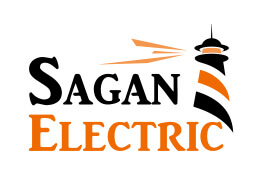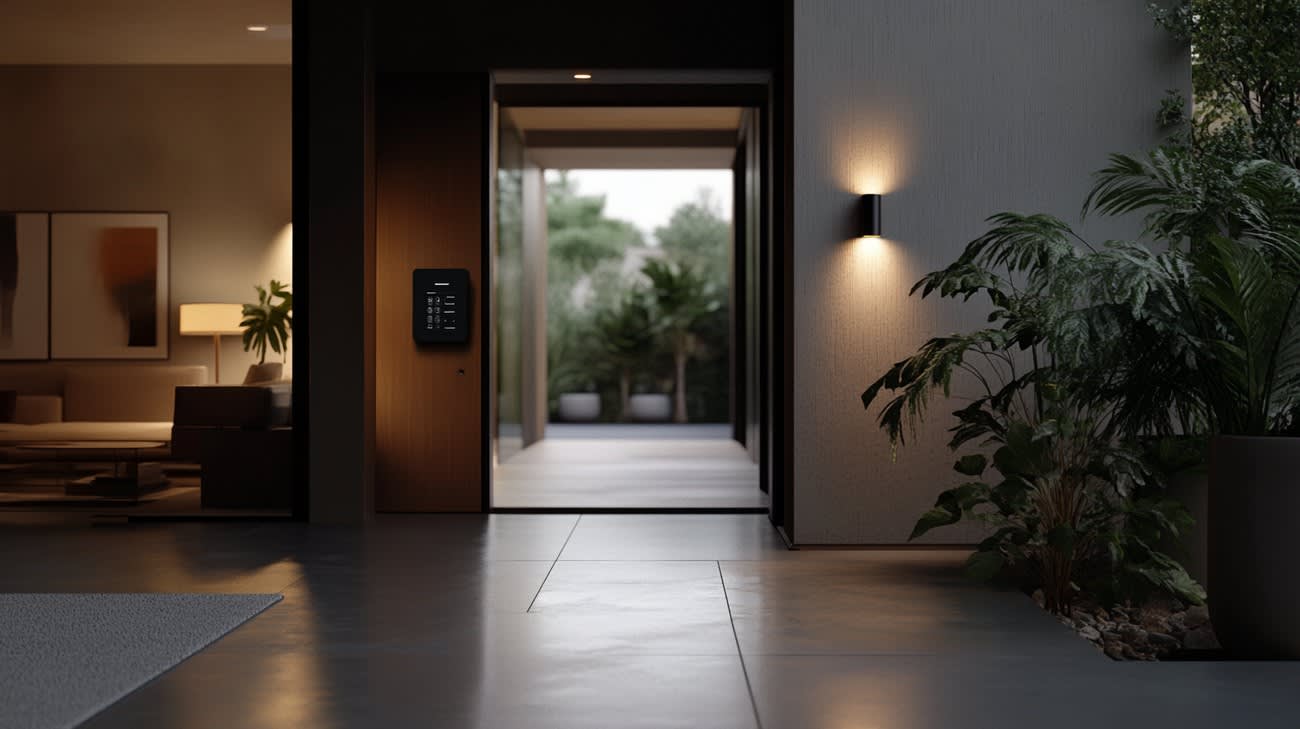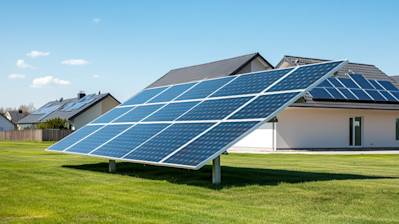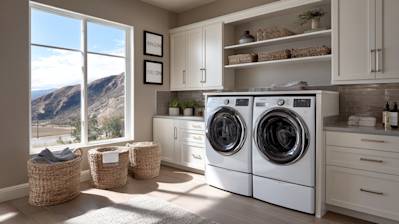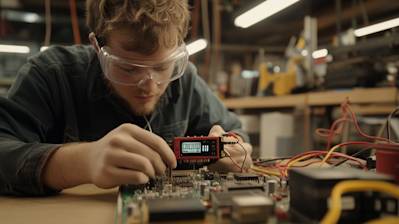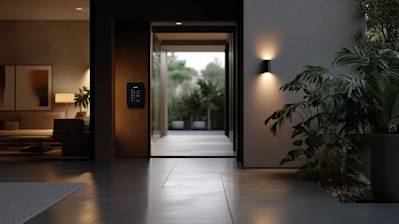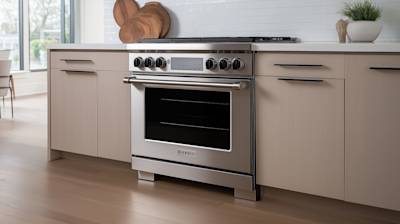Smart locks are transforming the way we perceive home security, adding a modern touch to traditional lock and key systems. This novel technology offers countless benefits, from seamless control remotely to giving calculated access to specific people. Being comprehensively informed about smart locks' features, installation, and types will help you make an informed decision before you invest in this advanced home security device.
Why Are Smart Locks Important?
Smart locks stand at the intersection between convenience and security. They are essential for various reasons:
- Improved Security: Digital encryption used in smart locks makes them highly secure, reducing the probability of a break-in.
- Remote Access: Gain the ability to control and monitor the locks remotely using a simple application on your phone.
- Easy Access Management: Grant scheduled access to friends, family, or service providers without the risk of a lost or duplicated key.
- Efficient: Smart locks eliminate the hassle of fumbled keys and forgotten combinations.
Understand the Technology Behind Smart Locks
In simple terms, a smart lock is an electromechanical device that locks and unlocks a door when it receives commands from an authorized device, usually a smartphone app. Be it via Bluetooth, Z-Wave, or Wi-Fi, your smart lock system uses these wireless communication protocols to respect commands from the authorized device. Integration with smart home ecosystems like Apple HomeKit, Google Assistant, or Amazon Alexa is another plus, contributing to a streamlined and futuristic home setup.
Installation of Smart Locks: Easier Than You Think
The installation of a smart lock doesn’t have to be complicated. Many models are designed to be retrofit devices that integrate seamlessly with existing deadbolts and door hardware. Other models replace your entire current lock system. For these, you may require professional guidance. Always ensure compatibility with your door type, size, and hardware before purchasing a smart lock.
Meet the Different Types of Smart Locks
Whether you’re looking for keypad-entry smart locks or biometric fingerprint readers, here are the most popular types of smart locks:
- Bluetooth Smart Locks: Using your mobile’s Bluetooth, these locks automatically unlock when your phone is in range and lock when it isn’t.
- Wi-Fi Smart Locks: These locks provide remote access from anywhere as they're connected to your home Wi-Fi. They also offer compatibility with virtual assistants.
- Z-Wave Smart Locks: Z-Wave locks require a Z-Wave hub connected to your router. They are generally used in large-scale home automation systems.
In choosing the type of smart lock, consider your specific daily needs, your home's current tech setup, and your overall budget.
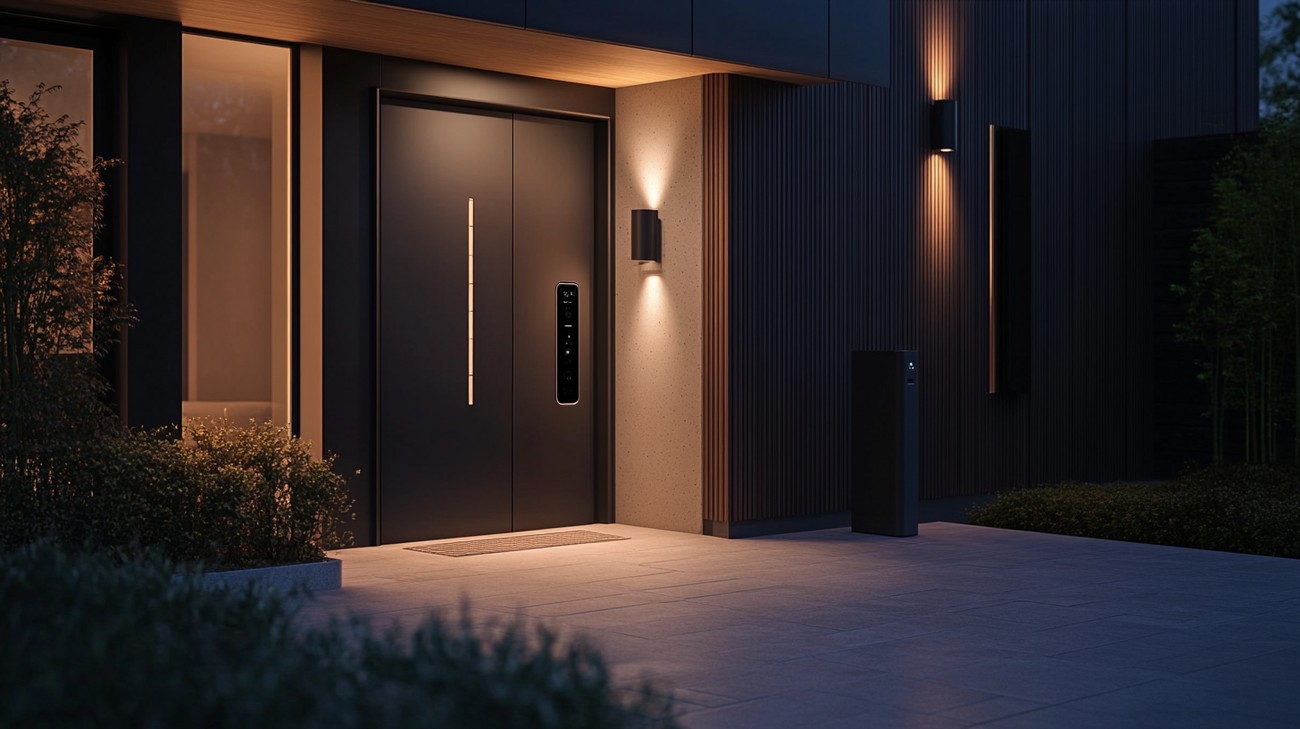
Frequently Asked Questions about Smart Locks
How Do Smart Locks Work?
Smart locks are paired with a smartphone via Bluetooth or Wi-Fi and the lock then communicates with the smartphone to lock or unlock the door. Some smart locks may also use RFID (Radio Frequency identification) or NFC (Near Field Communication) to communicate with special key fobs or cards.
How Can I Install a Smart Lock?
Usually, you can install a smart lock yourself using a screwdriver and following the manufacturer's instructions. In some cases, however, you might need to hire a professional or make some modifications to your doorway to ensure the lock fits properly.
Are Smart Locks Secure?
Yes, smart locks are generally secure. While no security system is completely infallible, smart locks bring a new level of safety and control to home security. They use encryption to protect your data from being intercepted by hackers, and many models cannot be picked or bumped like traditional locks can.
Can Smart Locks Be Hacked?
Just like most digital technology, there is always the potential for a smart lock to be hacked. However, the risk is relatively low and manufacturers take extensive measures to protect their locks against these attacks.
What Happens If My Smart Lock's Battery Dies?
It depends on the model of your smart lock. Some smart locks provide low battery warnings to prevent a lockout situation. Others can be temporarily powered by a 9-volt battery, while a few models still feature a traditional keyhole as backup.
Can I Use My Smartphone to Control Smart Locks?
Yes, one of the main attractions of smart locks is the ability to control them with a smartphone app. When your smart lock is connected to your phone, you can lock or unlock your door, manage guest access, and receive notifications about who enters and exits your home.
What is an Activity Log in Reference to Smart Locks?
An activity log is a function on many smart lock apps allowing you to see a record of every time your door was locked or unlocked, and by whom. It's a great way to keep track of who is coming in and out of your house while you're away.
Will My Smart Lock Still Work if My Wi-Fi Goes Down?
This depends on the smart lock. Many smart locks that rely on Wi-Fi also have a Bluetooth option for home use, which means you can still operate them from your phone within a certain range, even if your Wi-Fi goes down. However, remote access and functionalities like notifications might be affected when wifi is down.
Do I Need a Smart Home Hub to Use a Smart Lock?
Whether or not you need a smart home hub depends on the specific smart lock and its compatibility with other devices. Some smart locks require a hub, while others can communicate directly with your phone or smart speaker.
Can I Use Voice Commands with My Smart Lock?
Many smart locks support voice commands through integration with digital assistants like Amazon Alexa, Google Assistant, or Apple's Siri. This means you can ask your assistant to lock or unlock your door, check the lock's status, or even create routines where locking the door triggers other smart home actions.

Pros of Smart Locks
Convenience
One-time Access Codes
One of the key advantages of smart locks is their convenience. With traditional locks, you'd need to physically pass a key for someone else to gain entry. Smart locks, on the other hand, allow you to generate one-time access codes that can be sent to visitors, contractors, or anyone else who might need temporary access to your property. This can be especially handy for Airbnb hosts or anyone else who frequently has guests.
Remote Access
Another key convenience factor of smart locks is the ability to lock and unlock your door remotely. Forgot if you locked the front door? No problem. With your smartphone, you can check the status of your lock and lock your door from anywhere. This is much more convenient than having to physically return to your home to lock the door.
Integration with Smart Home Devices
Most smart locks can be integrated with other smart home devices and systems like Amazon Alexa, Google Home, or Apple HomeKit. For instance, you can program your smart lock to automatically lock your door when you ask Alexa to "Lock the house", or when your smart thermostat implies you've left the house. The possibilities are endless when you can integrate your smart lock with your entire smart home ecosystem.
Increased Security
Audit Trails and Alerts
With a smart lock, you can receive real-time alerts every time your door is locked or unlocked. You can also view an audit trail to see who has accessed your property and when. This offers an additional layer of security that traditional locks can't match.
Tamper Alerts
Higher-end smart locks also provide tamper alerts, warning the user if someone attempts to physically manipulate or damage the lock. This can provide you with immediate notice if an attempted break-in occurs.
More Keyless Options
Phone as a Key
Since smart locks can usually be controlled with a smartphone app, you can unlock your door with your phone instead of a standard key. This removes the need to carry around a physical key which can be lost, stolen, or copied.
Fingerprint Access
Some smart lock systems offer the ability to unlock the door using biometric identification like fingerprints. It provides a keyless entry that is highly personal and difficult for someone else to replicate.
Cons of Smart Locks
Dependence on Technology
Battery Life
Smart locks are typically battery-powered, and if those batteries die, the smart features of your lock will stop working. Some models have a backup power option, but that's not always the case.
Internet Reliance
At a fundamental level, most smart locks rely on Wi-Fi to operate properly. Thus, if your internet service is unreliable or goes down, your ability to control your lock remotely could be compromised.
Security Risks
Hacking Vulnerability
While smart locks offer improved physical security, they also open up a new potential security vulnerability: hacking. While high-end models often have encryption and other security measures, no system is completely impervious to a committed hacker.
Software Glitches
Just like any other piece of technology, smart locks aren't immune to software bugs and glitches. These can lead to various issues such as being unable to unlock your door or false-positive security alerts.
Cost
Smart locks are considerably more expensive than regular keys and locks. The upfront cost can be prohibitive for some users, especially if you're securing multiple doors with smart locks.
Difficulty of Installation
While some smart locks promise easy installation, others might require a bit more handyman skills – like drilling new holes into your door. This could be troublesome for those who are not tech-savvy or do not have much DIY experience. Some people might even have to hire a locksmith or an electrician to handle the installation, adding to the cost.
Compatibility Issues
Before investing in a smart lock, you need to ensure that it is compatible with your particular door and smartphone. Not all smart locks work well with all types of doors, and some smart lock apps may not run on older smartphones.

Myths/Misconceptions about Smart Locks
Smart locks offer innovative technology solutions designed to enhance home security. However, numerous myths and misconceptions surround this technological advancement, much of which stem from unfamiliarity, misconception, and misinformation. This comprehensive guide sets out to debunk some of these misconceptions and shed light on the truth surrounding smart locks.
Myth 1: Smart Locks are Less Secure
One of the most damaging misconceptions about smart locks is the myth that they are less secure than traditional, mechanical locks. This myth stems from the perceived vulnerability of smart locks to hacking.
Fact
While it is true that smart locks are digital and therefore susceptible to digital threats, it's also important to note that these devices undergo rigorous security measures. When properly installed and managed, they use sophisticated encryption techniques that make them as secure – or sometimes even more secure – than traditional locks.
Also, some smart locks have features that allow for remote locking and unlocking, temporary guest access, and automatic locking – ultimately providing more control over who has access to your home.
Myth 2: Smart Locks Require Tech-Savvy Users
A myth is the assertion that you need advanced technological understanding to operate a smart lock. The concern here is that it might be too complicated for everyday, non-tech-savvy homeowners.
Fact
While it's true that smart locks involve technology, they're designed with user-friendliness in mind. Most of these devices come with highly intuitive interfaces, easy-to-follow setup instructions, and feature-rich smartphone applications designed for a straightforward operation. Some even offer voice-guided setup for more effortless installation and operation.
Myth 3: Smart Locks are Expensive
Another common misconception is that smart locks are prohibitively expensive. Indeed, the perception is that these devices are luxurious items that only wealthier homeowners can afford.
Fact
While there is a wide variety of smart lock models – some of which can be quite costly – many affordable options provide great security with a rich feature set. Prices can vary, but there is a variety of price points to suit different budgets.
Myth 4: Smart Locks Need Constant Battery Changes
The myth here is that because smart locks are battery-powered, homeowners must change batteries frequently – a task seen as annoying and inconvenient.
Fact
Most smart locks are designed with power efficiency in mind. They use low-energy protocols like Bluetooth and Z-wave, allowing the batteries to last anywhere from several months to over a year, depending on usage. Most smart locks also provide low battery alerts when it's time for a replacement.
Myth 5: Smart Locks Require Internet Connection
It is a common misconception that if the internet goes down, smart locks will stop functioning, leaving homeowners locked out of their homes.
Fact
While internet connectivity does provide added features such as remote access and instant notifications, a majority of smart locks do not require internet to function. Even without an online connection, smart locks will still provide secure access to homes using keycodes, RFID cards, or even physical keys for certain models.
Myth 6: Smart Locks Make Your Home a Target
Lastly, there is this idea that a smart lock on your front door makes your home a target for thieves who see it as a sign of expensive gadgets inside.
Fact
A smart lock itself does not make your home a more desirable target for burglaries. Thieves usually look for easy targets and would more likely be deterred by advanced technology that they don't understand than be attracted to it. Furthermore, smart locks are often inconspicuous and look like regular door locks.
Conclusion
The numerous myths and misconceptions surrounding smart locks often inaccurately represent this technology. We've debunked some of those myths here, revealing that smart locks are secure, user-friendly, affordable, and reliable security devices. As technological advancements progress, these smart devices will undoubtedly become even more integral to our home security systems.
Summary
Smart locks have undoubtedly changed the way we think about home security. No more carrying around bulky keys or worrying about losing them, smart locks provide a user-friendly and high-tech alternative. Flexible and versatile, with features like remote locking/unlocking via smartphone and temporary access for visitors, it's no wonder more and more people are making the switch.
Smart locks also take home security to a new level. Advanced features like voice control, geofencing, and auto-locking capabilities offer a heightened sense of safety. Furthermore, most smart locks come with traditional key options, offering a backup plan in case of technical difficulties. Even though some people may be concerned about hacking, the fact assures that smart lock tested to keep unwanted guests out.
Lastly, the features and benefits of smart locks far outweigh any potential disadvantages. Their user-friendly features cater to a high level of convenience that was previously unmatched in home security. As technology continues to advance, smart locks will undoubtedly become even more secure and efficient, making them an integral part of our homes.
About Sagan Electric
Sagan Electric, based in the vibrant city of Sacramento, CA, is your trusted partner for all electrical needs. Our locally owned and operated business boasts a dynamic team of seasoned pros who are not just passionate about their craft, but also committed to solving your electrical worries swiftly and efficiently. Whether you need a simple home socket replacement or comprehensive wiring for your commercial facility, you can count on us. We pride our reputation on years of solid experience, unwavering commitment to safety, and an unbeatable track record of happy customers. So when it comes to anything electric, remember - Sagan's got you covered!
Tags: home security, digital door locks, keyless entry,
